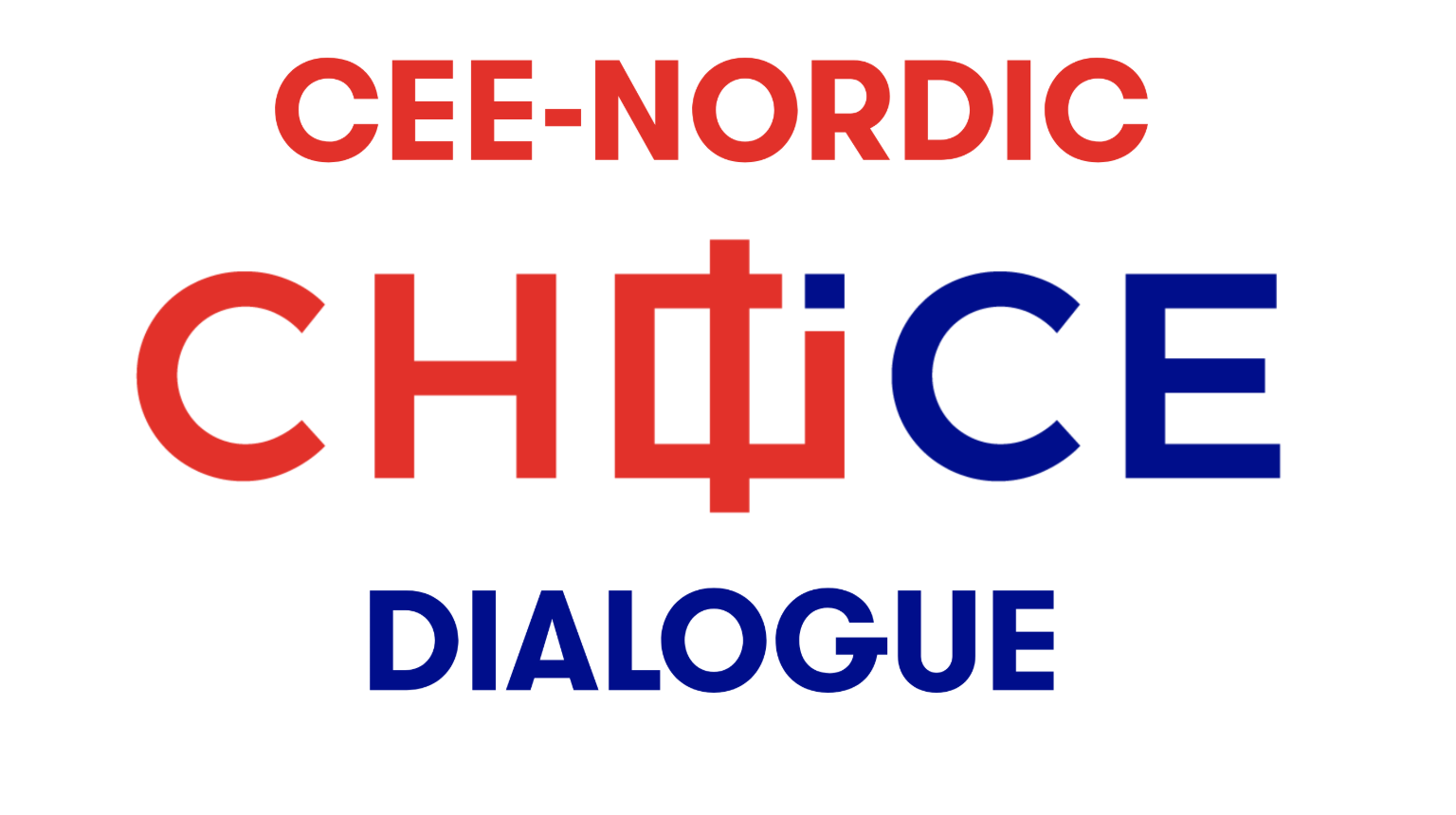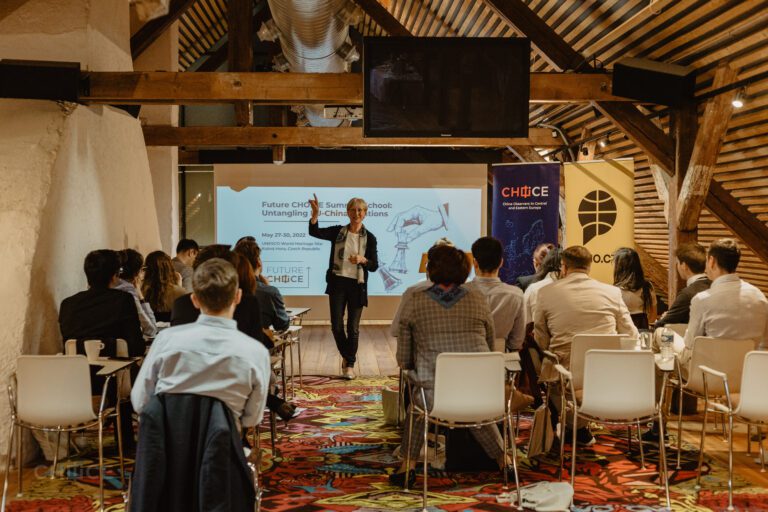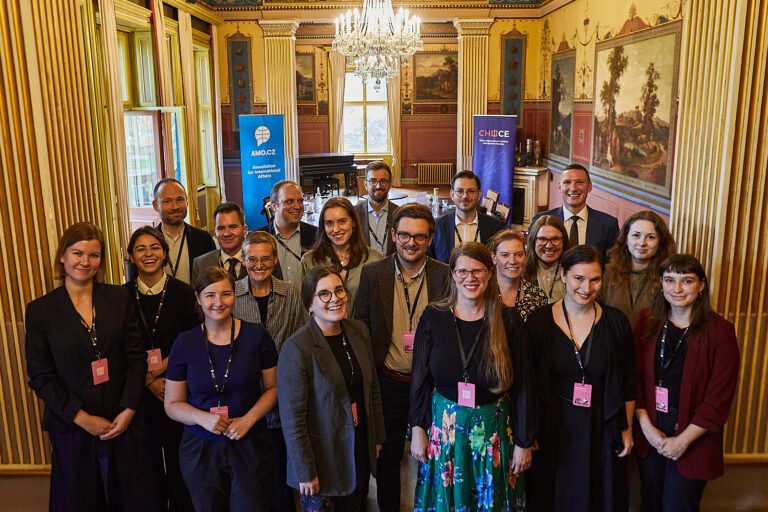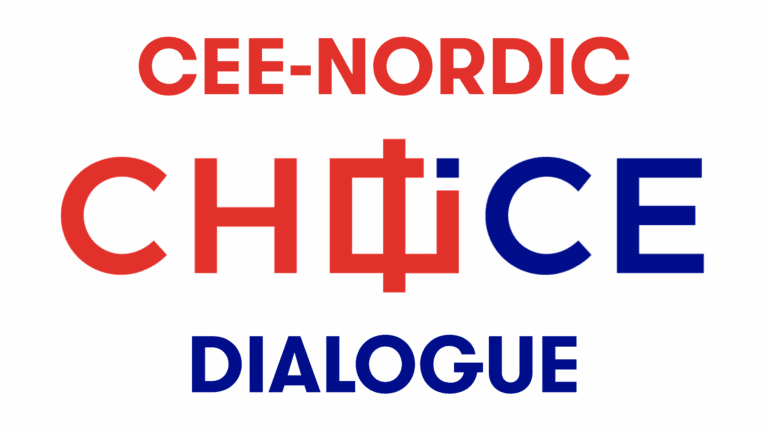CHOICE and UI Hold CEE-Nordic Dialogue on Navigating Research Security

On September 10, 2025, the second iteration of the CEE-Nordic Dialogue on China was co-organized by the Swedish National China Centre (NKK) at the Swedish Institute of International Affairs (UI) and China Observers in Central and Eastern Europe (CHOICE), this time focusing on the topic of research security.
Research security has become a prominent and sometimes contentious topic in European discussions about international collaboration, especially in relation to China. While China is viewed both as a systemic rival and an attractive research partner, countries and institutions across Europe are grappling with how to balance the opportunities and risks involved.
This roundtable brought together around 30 analysts and policymakers from Nordic and Central and Eastern European countries to share perspectives, highlight national differences, and discuss how best to navigate the evolving landscape of research security.
The discussion highlighted a clear shift: research collaboration with China is now viewed through a more skeptical lens, not dissimilar to the evolution that economic engagement with China has undergone. Still, there was optimism that a growing recognition of China’s role as a science nation and increasing understanding of risks will help foster smarter collaboration in the future.
Collaboration With China Cools – or Does It?
On the one hand, growing influence of geopolitical thinking makes it increasingly difficult to argue for shared scientific challenges and the value of science diplomacy. On the other hand, despite concerns about a “chilling effect” on international collaboration, bibliometric data from Sweden does not yet show a decline in co-authored publications with China – on the contrary, the numbers continue to rise. However, participants noted that such data may lag behind real-world developments. In Central and Eastern Europe, studies have shown increasing cooperation with China, but the interpretation of such data depends on what is measured – e.g., outputs vs. funding sources.
Support Structures and the Need for China-Specific Resources
Several countries have adopted similar models, producing guidelines and training materials to support researchers. Finland’s mini-course for academic visits to authoritarian countries and its monthly reporting from Beijing were cited as practical tools to raise awareness and build competence.
Although most initiatives across countries have been country-agnostic, participants agreed on the need for more country-specific knowledge resources to help researchers understand the political and institutional context of Chinese academia. Understanding the governance of Chinese universities and the role of the Communist Party was seen as essential for informed decision-making. There is also a need to strengthen the domestic European knowledge base and resources, so that researchers are not reliant on external tools. A European tool akin to the ASPI tracker that is under development was mentioned.
Risks in Social Sciences and Humanities
Forthcoming research indicates that repression by Chinese authorities targeting European China specialists is more widespread than previously understood, at least in some countries. While STEM fields often dominate discussions on research security, several speakers emphasized that breaches and vulnerabilities are frequently found in the social sciences and humanities. These disciplines are less regulated and often overlooked in national strategies. Extending security measures to these fields requires tailored approaches, as the nature of risks differs significantly from those in STEM.
Tensions Between Research Security and Academic Freedom
The roundtable revealed a widespread tension between the growing emphasis on research security and the traditional values of academic freedom. While governments increasingly introduce guidelines and oversight mechanisms, researchers often perceive these as politicization or bureaucratization of science.
Questions were raised about who defines risk, who is at risk, and what the consequences are of not collaborating. Participants noted that the term “research security” itself can be polarizing. The alternative “research integrity” was proposed as a more constructive framing that resonates better with academic communities. This term allows for a more balanced approach that acknowledges both risks and opportunities in international collaboration. Sweden’s concept of “responsible internationalization” was highlighted as a useful framework that emphasizes researcher agency and institutional responsibility. The approach encourages universities to pursue collaboration when appropriate, not just to abstain.
Implementation Challenges and Variation Across Countries and Institutions
Regulatory frameworks are expanding, but implementation remains uneven and contested. In Denmark, national guidelines exist, but universities interpret and apply them differently, and tensions persist between researchers and security services. In Sweden, national guidelines are not yet fully developed, but the implementation of research security measures at the university level already face challenges due to the cultural divide between researchers and actors responsible for security.
In the Czech Republic, research security measures have largely been implemented reactively, following regulatory breaches and public scandals. Moving towards a more proactive approach would mean taking greater account of researchers’ incentives, as is already done in countries like Germany and the Netherlands. In North Macedonia, awareness of research security risks remains limited within the academic sector. While the government is more attuned to these issues, there is a lack of effective communication and coordination between policymakers and researchers. In Estonia, the absence of ongoing collaboration with China has led to a decline in domestic expertise on China-related matters.
Several speakers called for greater coordination at the EU level, noting that national approaches are insufficient given the transnational nature of research collaboration. However, research and higher education systems across Europe differ significantly, particularly in terms of autonomy, which makes a one-size-fits-all model challenging to implement.
Smaller universities in particular struggle to build capacity for risk analysis and to navigate complex geopolitical landscapes. There is a strong demand for user-friendly tools and discreet implementation strategies that avoid stigmatizing Chinese students and staff. There was also interest in sharing experiences at the departmental level, especially regarding how to implement guidelines without creating anxiety or distrust.
Referenced Reports, Resources, and Initiatives by Country
EU/UK
- Dominika Remžová and Ivana Karásková, From Awareness to Action: Research Security in Czech and European Academia (Prague: Association for International Affairs, 2025)
- Horizon Europe call on research integrity and security (Horizon Europe portal)
- EU flagship conference on research security (Brussels, October, registration closed)
- An upcoming joint Nordic session at the upcoming EU flagship conference in Brussels
Finland
- Recommendations for academic cooperation with China (2021)
- Mini-course: Academic visit to an authoritarian country
- Upcoming workshop on corruption in international higher education and research cooperation (Ministry of Education, Science and Culture, September)
- News article (in Finnish): Sata suomalaisen yliopiston opiskelijaa sai oudon vaatimuksen Kiinasta
Norway
Poland
- An upcoming government report with recommendations on research security, explicitly related to China
Sweden
- Proposals for National guidelines for responsible internationalization
- SUHF checklist for global engagement (found on their website)
- Forthcoming STINT report on risks and opportunities in research collaboration
- Kina i korthet (China in Brief) by the Swedish National China Centre
- “Swedish Research Collaboration with China at a Crossroads” in Strategic Outlook 10: China as a global Power (Swedish defense research agency)
Written by
CHOICE
CHOICE is a multinational consortium of experts providing informed analysis on the rising influence of the People’s Republic of China within the countries of Central and Eastern Europe (CEE).


